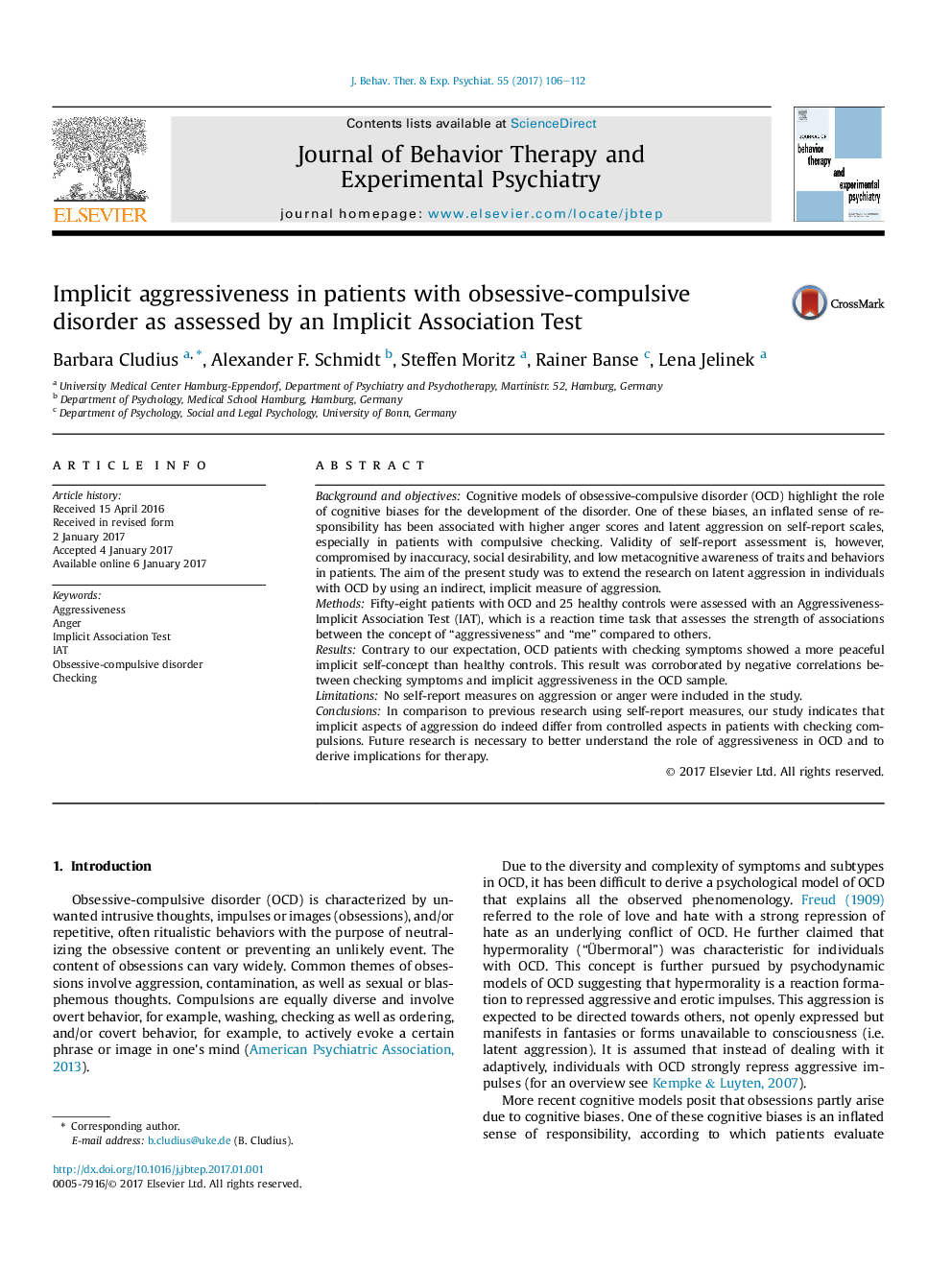| کد مقاله | کد نشریه | سال انتشار | مقاله انگلیسی | نسخه تمام متن |
|---|---|---|---|---|
| 5039059 | 1473061 | 2017 | 7 صفحه PDF | دانلود رایگان |
- Checkers show a more peaceful implicit self-concept than healthy controls.
- Checking and implicit aggressiveness are inversely correlated in OCD.
- Measures of implicit and explicit aggression yield different results in checkers.
- Aggression may be over reported in OCD due to incongruence with moral standards.
Background and objectivesCognitive models of obsessive-compulsive disorder (OCD) highlight the role of cognitive biases for the development of the disorder. One of these biases, an inflated sense of responsibility has been associated with higher anger scores and latent aggression on self-report scales, especially in patients with compulsive checking. Validity of self-report assessment is, however, compromised by inaccuracy, social desirability, and low metacognitive awareness of traits and behaviors in patients. The aim of the present study was to extend the research on latent aggression in individuals with OCD by using an indirect, implicit measure of aggression.MethodsFifty-eight patients with OCD and 25 healthy controls were assessed with an Aggressiveness-Implicit Association Test (IAT), which is a reaction time task that assesses the strength of associations between the concept of “aggressiveness” and “me” compared to others.ResultsContrary to our expectation, OCD patients with checking symptoms showed a more peaceful implicit self-concept than healthy controls. This result was corroborated by negative correlations between checking symptoms and implicit aggressiveness in the OCD sample.LimitationsNo self-report measures on aggression or anger were included in the study.ConclusionsIn comparison to previous research using self-report measures, our study indicates that implicit aspects of aggression do indeed differ from controlled aspects in patients with checking compulsions. Future research is necessary to better understand the role of aggressiveness in OCD and to derive implications for therapy.
Journal: Journal of Behavior Therapy and Experimental Psychiatry - Volume 55, June 2017, Pages 106-112
